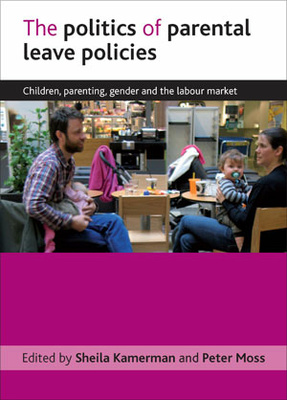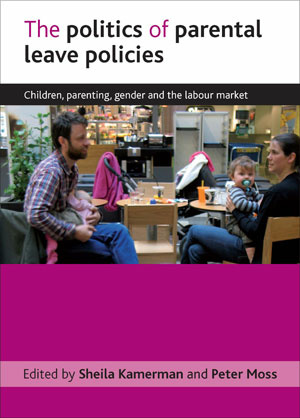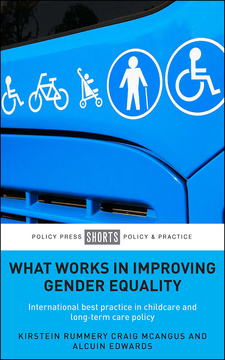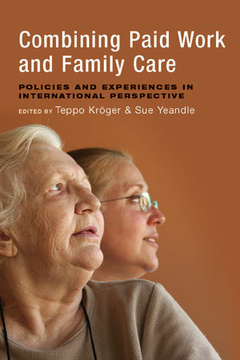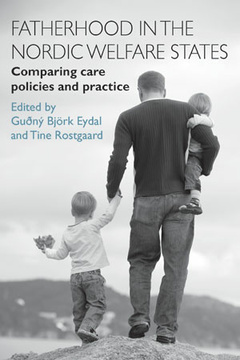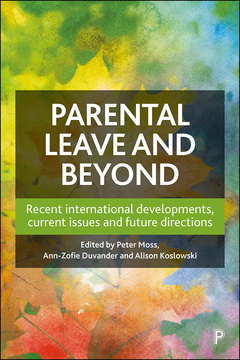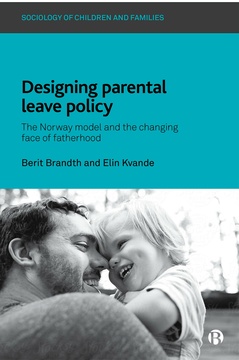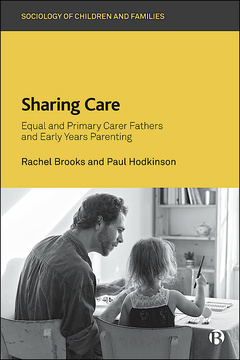The politics of parental leave policies
Children, parenting, gender and the labour market
Edited by Sheila Kamerman and Peter Moss
Published
Jan 19, 2011Page count
296 pagesISBN
978-1847429032Dimensions
240 x 172 mmImprint
Policy PressPublished
Jul 22, 2009Page count
296 pagesISBN
978-1847420671Dimensions
240 x 172 mmImprint
Policy PressWith the growth of parental employment, leave policy is at the centre of welfare state development and at the heart of countries' child and family policies. It is widely recognised as an essential element for attaining important demographic, social and economic goals and is the point where many different policy areas intersect: child well-being, family, gender equality, employment and labour markets, and demography. Leave policy, therefore, gives a unique insight into a country's values, interests and priorities.
International comparisons of leave policy are widely available, but far less attention has been paid to understanding the factors that bring about these variations. "The politics of parental leave policies" makes good this omission. Looking at parental leave policy within a wider work/family context, it addresses how and why, and by whom, particular policies are created and subsequently developed in particular countries. Chapters covering 15 countries in Europe and beyond and the European Union bring together leading academic experts to provide a unique insight into the past, present and future state of this key policy area.
"The politics of parental leave policies" is essential reading for students, teachers and researchers in social policy, child and family policy, welfare states, gender relations and equality, and employment and labour markets, providing an opportunity to study in depth the creation of social policy. It will also be of interest to policy makers in national governments and international organisations.
"Thought-provoking indeed." Katrina Allen in Children and Society
"Parental leave policy is on the agenda in many countries today. While the variation across countries has been well documented, this timely book fills an important gap by exploring the reasons behind that variation." Jane Waldfogel, Columbia University School of Social Work
Dr. Sheila B. Kamerman is the Compton Foundation Centennial Professor for the Prevention of Child and Youth Problems at the Columbia University School of Social Work and Director of the university-wide and interdisciplinary Institute on Child and Family Policy (ICFP). Her current research is focused on global developments in social protection policies for children and their families.
Peter Moss is Professor of Early Childhood Provision at the Thomas Coram Research Unit, Institute of Education, University of London. His research interests include early childhood services, the children's workforce and the relationship between care, employment and gender.
Introduction ~ Peter Moss and Sheila B. Kamerman; Australia: the difficult birth of paid maternity leave ~ Deborah Brennan; Canada and Québec: two policies, one country ~ Andrea Doucet, Lindsey McKay and Diane-Gabrielle Tremblay; Czech Republic: normative or choice-oriented system? ~ Jiřina Kocourková; Estonia: halfway from the Soviet Union to the Nordic countries ~ Marre Karu and Katre Pall; Finland: negotiating tripartite compromises ~ Johanna Lammi-Taskula and Pentti Takala; France: gender equality a pipe dream? ~ Jeanne Fagnani and Antoine Math; Germany: taking a Nordic turn? ~ Daniel Erler; Hungary and Slovenia: long leave or short? ~ Marta Korintus and Nada Stropnik; Iceland: from reluctance to fast-track engineering ~ Thorgerdur Einarsdóttir and Gyda Margrét Pétursdóttir; The Netherlands: bridging labour and care ~ Janneke Plantenga and Chantal Remery; Norway: the making of the father's quota ~ Berit Brandth and Elin Kvande; Portugal and Spain: two pathways in Southern Europe ~ Karin Wall and Anna Escobedo; Sweden: individualisation or free choice in parental leave ~ Anders Chronholm; The European Directive: making supra-national parent leave policy ~ Bernard Fusulier; Conclusion ~ Sheila B. Kamerman and Peter Moss.







